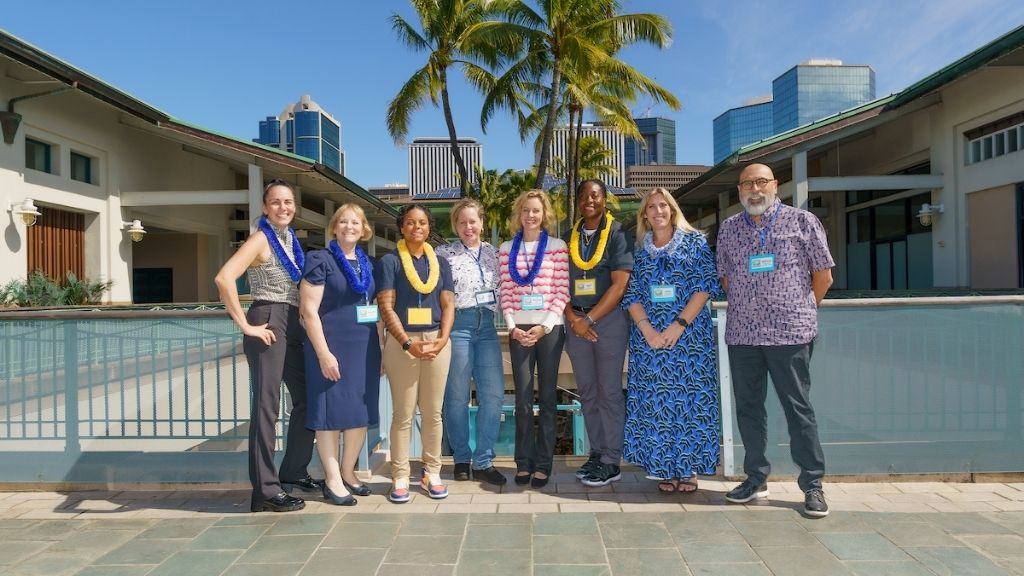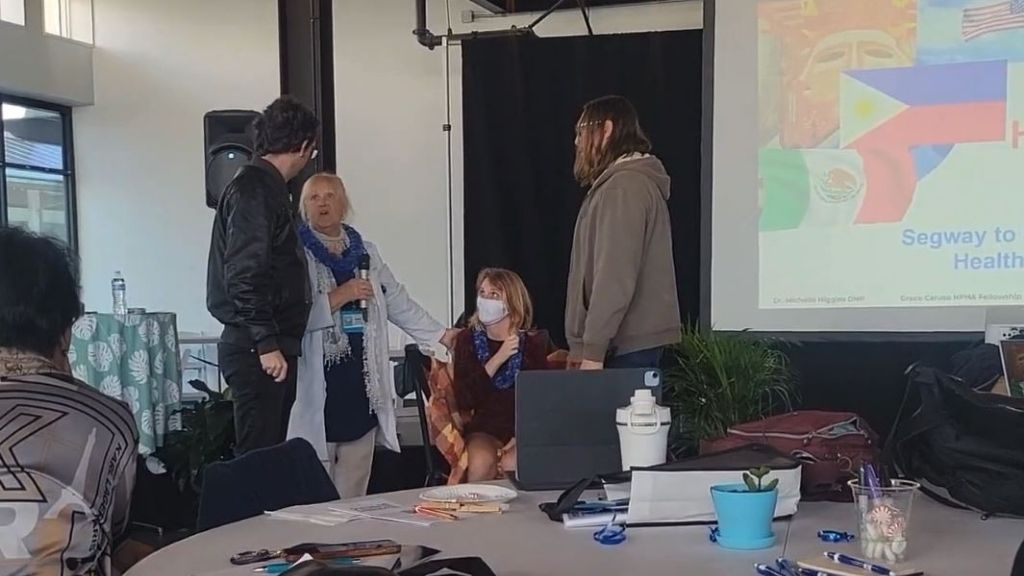Hawaiʻi Pacific University (HPU) recently played a key role in the Waves of Justice: Human Trafficking Awareness & Strategy Summit, a collaborative community conference held at HPU’s Aloha Tower Marketplace. Led in part by HPU’s public service faculty, this event brought together students, faculty, and nonprofit organizations to explore multidisciplinary strategies to combat human trafficking in Hawaiʻi.
The conference, a partnership between HPU, Chaminade University of Honolulu, and the nonprofit Ho’ōla Nā Pua, emphasized real-world learning experiences for students across multiple academic disciplines. Assistant Professor Jennifer Merkle, J.D., from HPU’s College of Professional Studies, was instrumental in organizing the event, which sought to strengthen collaboration between government agencies, educational institutions, and community organizations.
A Multi-Disciplinary Approach to a Complex Issue
Human trafficking is a deeply complex crime that requires a holistic approach. Recognizing this, Merkle actively engaged students from HPU’s criminal justice, social work, and public health programs in the conference planning and execution. The goal was not only to raise awareness but also to equip students with practical experience in addressing criminal and social justice challenges.
“Having worked in the criminal justice field for decades, I know the importance of ensuring all stakeholders have a chance to have their perspectives heard and influence how we as a community choose to address community challenges,” said Merkle. “That is only possible through collaboration, and I am a strong believer in modeling such collaboration and providing students with opportunities for such collaboration during their studies.”
Inspired by recent research on human trafficking in Hawaiʻi, she sought to create an event that would bring together key stakeholders, spark innovative thinking, and provide a space for meaningful discourse and action.
“The primary goal of this conference was to increase awareness of what this topic is and what it may look like so our community can better understand how to prevent and respond to it,” Merkle explained. “Human trafficking, both labor and sex trafficking, is a complex crime predicated upon an explorative relationship between two or more people that as a society we have determined is criminal due to the age of the participant, or the use of force, fraud, or coercion.”
Student and Community Engagement
The Waves of Justice Summit provided a transformative experience for students, offering them firsthand insight into the complexities of human trafficking and the multidisciplinary efforts required to combat it. For many attendees, the event was not only an academic exercise but a deeply personal and eye-opening engagement with real-world issues.
Rebecca Raynoschek, a criminal justice major at HPU, viewed the conference as an opportunity to translate her passion for justice into meaningful action. “I entered the planning phase of this conference with the goal of utilizing my event planning experience to create something more impactful for our community and increase awareness of human trafficking, prevention, and intervention efforts,” she shared. “My intentions and goals were definitely achieved, and attending the conference only strengthened my determination to work on these issues in my future career.”
A powerful moment during the summit was hearing directly from survivors. Their testimonies helped humanize the issue, making the realities of exploitation more tangible. “It is one thing to listen to research being presented or to hear what law enforcement is doing,” Raynoschek reflected. “But it is entirely different to hear the lived experiences of those who have been victimized. Providing a safe space for survivors to speak about their experiences and share what they need from their communities was incredibly inspiring.” One of the most impactful elements of the summit was a simulated learning experience led by Jayne Smitten, Ph.D., Public Health Program Chair and SIMulationist educator, which demonstrated real-world scenarios of human trafficking. This hands-on approach helped attendees better understand the complexities of identifying and responding to exploitation.
“Simulation-based education has become an indispensable teaching and learning tool to champion healthcare simulation challenges. The experiential, real-time sex trafficking scenario that was presented at the conference revealed this potential,” said Smitten, who also previously served as President for the Society for Simulation in Healthcare (SSH), a global interdisciplinary healthcare simulation network. “Best practice standards and exemplary simulation practices have demonstrated direct improvement in patient care and safety—physically, emotionally, and spiritually.”
Addressing Hawaii’s Unique Challenges
Hawaiʻi faces distinct challenges in combating human trafficking, including geographic isolation, a tourism-driven economy, and cultural nuances that influence both vulnerability and response efforts. The conference sought to address these issues by fostering partnerships between academia, law enforcement, social services, and grassroots organizations.
“Prevention takes the whole community working together to build an environment that allows all people to feel connected, that identifies these explorative relationships and offers support and pathways for those trying to exit those relationships,” Merkle said. “This requires coordination and support from additional stakeholders such as religious institutions, community groups, health-related organizations, and even the private sector, like hotels and airlines.”
The event also highlighted the importance of including students in engagement efforts. Raynoschek is urging her peers to recognize their responsibility in addressing these issues. “HPU students must realize it is their kuleana to educate themselves on what is happening on these islands, many only call ‘home’ for four years,” she explained. “A strong community is key to building a healthy and vibrant society.”
Looking Toward the Future
The Waves of Justice Summit was not just a one-time event but a stepping-stone towards ongoing efforts in human trafficking awareness and prevention. One of the long-term goals is to form a consortium to pursue grant funding for continued research and program development. HPU students and faculty will remain actively engaged in community-based solutions, ensuring that the work started at this summit continues to benefit Hawaiʻi’s residents.
“Through enhanced collaboration and community engagement, Hawaiʻi can lead efforts in combating human trafficking, setting a precedent for effective intervention and support frameworks nationwide,” Merkle said.
Following the summit, Raynoschek and fellow student Makayla Martinez were inspired to take further action. They are in the early stages of forming a nonprofit focused on developing human trafficking prevention curricula for students in grades 7-12, their caregivers, and their families.
“We were shocked by the lack of education in a place that is so vulnerable to human trafficking, and we felt passionate to advocate for reform,” Raynoschek said.
As HPU strengthens its commitment to experiential learning and community collaboration, events like the Waves of Justice Summit serve as powerful examples of how education can directly impact pressing societal challenges. Through interdisciplinary cooperation and active student participation, HPU continues to make a meaningful difference in the fight against human trafficking.




